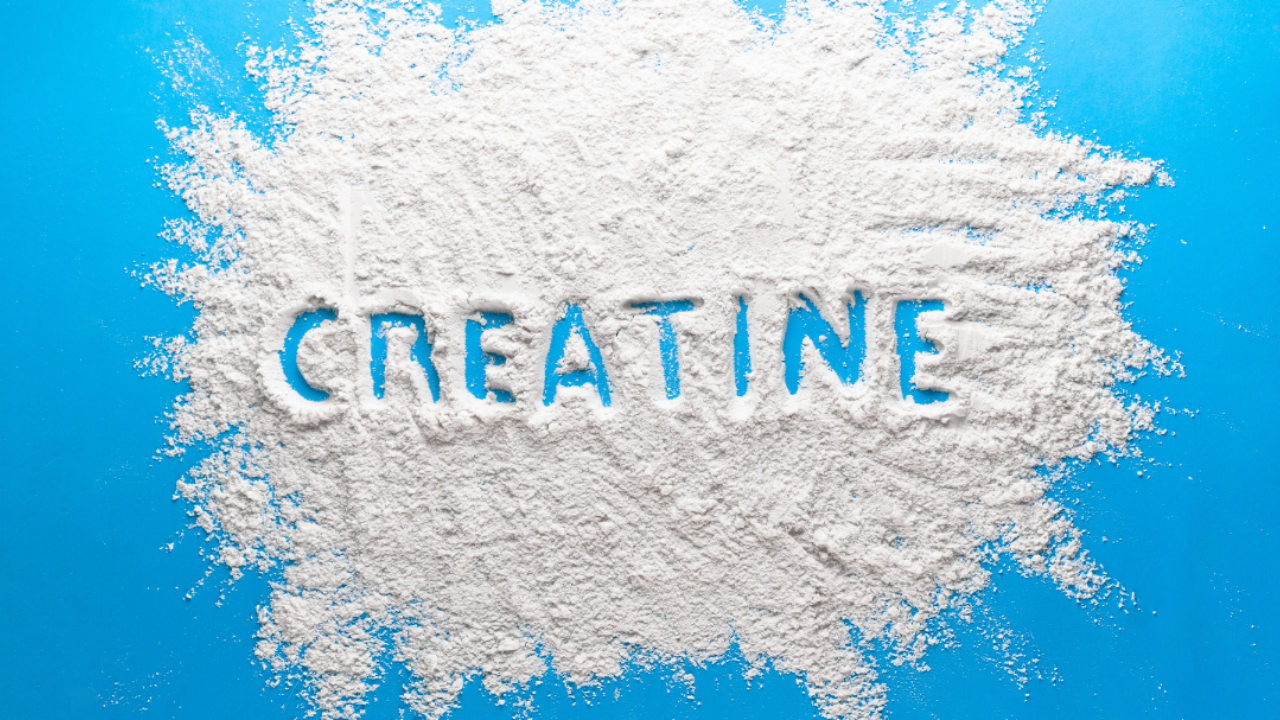2 Hot Creatine Questions - Answered With Science!
Apr 08, 2025
I''m on a mission to get as many people hooked on this powdery white substance as I possibly can.
No, I'm not on about a popular soft drink. I am of course referring to creatine.
Hands down one of the greatest supplements around, creatine is a behemoth when it comes to performance.
But, as with any great supplement, there are plenty of questions surrounding it, and in todays email I'm going to expertly answer two of them...
Does creatine cause water retention?
Oh the old 'creatine causes water retention' statement has been around for a very long time, and is the reason why countless people stay away from it.
So, with the help of peer reviewed studies, let's finally answer the question that I know is keeping you up at night:
Q. Does creatine cause water retention?
Well according to a study by Ribeiro et al in 2020 titled, 'Creatine Supplementation Does Not Influence the Ratio Between Intracellular Water and Skeletal Muscle Mass in Resistance-Trained Men.'
The answer is YES, it does cause water retention, BUT, the water is stored mostly in your muscles.
→ So you DON'T have to worry about looking bloated or "puffy" when you supplement creatine into your diet.
Let's dive into the research so you're crystal clear on this 'myth' once and for all.
Researchers compared two groups over 8-weeks. One taking creatine and the other a placebo. They followed a workout program and at the end of the 8 weeks changes in body composition and body water were evaluated.
I'm not going to go into all the small details of the study, but if you want to read it in detail yourself, then you can do so here.
The researchers found significant differences between the two groups for changes in:
- Body mass
- Muscle mass
- Intracellular water
- Total body water
→ All importantly, changes were greater in the creatine group.
Now, if you read this you'd be thinking creatine DOES in fact cause you to retain water.
While the group using creatine did gain more water over the 8-weeks, all importantly that was intracellular water.
Intracellular water is found inside the cell. This means the water is stored mostly in your muscles.
If the added water was extracellular water, which is the water that is found on the outside of the cells, then this could give off that bloated or "puffy" look.
The placebo group also seen increases in all these mentioned variables, the creatine group just increased them more.
Now this next part is where it starts to get a little 'sexy' ↓
The reason why increasing intracellular water is important is because of 2 things:
- Cell swelling
- Intracellular hydration
These have been proposed as a primary mechanism to promote hypertrophy, or in Lehmans term, the building of muscle.
So this added water gained via creatine supplementation can in fact be seen as a positive.
Oh and talking of building muscle, it should come as no shock that the group using creatine gained 2.3 kg of muscle mass, roughly 1.4 kgs (+4.3%) more than the placebo group.
When it comes to muscle, that's a HUGE difference!
So what does all of this mean for you?
Simple → Don't fear the water retention that has been associated with creatine use since the dawn of time (slight exaggeration).
Creatine isn't going to make you look soft and doughy, if anything it's going to make you look even more muscular.
Should I buy the expensive creatine?
I've fallen into this trap before. Wondering if the pricier Hydrochloride Creatine is better quality and will therefore produce better results.
So once again with the help of a peer reviewed study, let's get stuck into a question that I didn't know the answer to until very recently:
Q: Should I buy the more expensive hydrochloride creatine?
To back up what I'm saying, I'm going to use a study by Eghbali & Suzuki, (2024) titled,
'Supplementing With Which Form of Creatine (Hydrochloride or Monohydrate) Alongside Resistance Training Can Have More Impacts on Anabolic/Catabolic Hormones, Strength and Body Composition?'
In short, NO.
The study found no differences between the effectiveness of the more expensive Creatine Hydrochloride and the less expensive, household name Creatine Monohydrate.
→ So you DON'T have to fork out 2-3x more on your creatine supplement in the hope that it'll be better for your muscle and brain gains.
So let's get stuck into the research so you can tell your friends why creatine monohydrate is still the king of creatine supplementation.
Researchers compared 4 groups in a randomised controlled trial that lasted 8 weeks.
This study included 40 participants aged 20–25 who had 6–12 months of weight training experience, had no injuries or health problems that would limit their exercise.
The researchers of this study tested the effect of taking .03 g/kg of body weight of creatine HCL vs. creatine monohydrate (MH).
The results:
Body Composition - All of the groups taking creatine (either MH or HCL) seen significant reductions in body fat and an increase in skeletal muscle mass relative to the placebo group. There wasn't a difference between the type of creatine on any measures of body composition.
Strength - All of the groups taking creatine (either MH or HCL) seen a significant increase in their one rep max on the leg press and bench press relative to the placebo group. There wasn't a difference between the type of creatine on strength.
Now the reason why the results of this study is important is because creatine monohydrate is a relatively cheap supplement. Bang for your buck it's hands down the best value for money supplement around - no question!
But in recent years, companies have started selling Creatine Hydrochloride as a more effective, cleaner version of creatine that is more water soluble. The suggestion was that this made it a better option and would produce better results. Oh and it just so happens to cost twice as much.
This is simply another example of the fitness industry using marketing claims to fill their pockets up with customers who simply don't know any better.
But as this study shows, there isn't any difference whatsoever. Highlighting once again that creatine monohydrate really is king of the castle.
By all means if you want to spend £25 on a bag of creatine HCL, go ahead. But just know that the £10 bag is equally as effective.
That's a mistake I'll not be making again.
My coaching program, The Paradigm Project, helps ambitious entrepreneurs, c-suites, & business owners live a healthier, stronger, and all-around better life.
Most importantly, one of the main aims of the program is to help every single client achieve pain-free performance!
If you are in the mood to transform your health & fitness, then life-changing results are within your reach.
Click on the link to book your free coaching call and we can build a plan that changes your life!
Quote for the day
"Change is painful, but nothing is as painful as staying stuck somewhere you don't belong"
- Mandy Hale
- Mark


